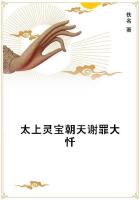It is somewhat remarkable, that notwithstanding men value themselves so much on qualities of the mind, on parts, learning and wit, on courage, generosity, and honour, those men are still supposed to be in the highest degree selfish or attentive to themselves, who are most careful of animal life, and who are least mindful of rendering that life an object worthy of care. It will be difficult, however, to tell why a good understanding, a resolute and generous mind, should not, by every man in his senses, be reckoned as much parts of himself, as either his stomach or his palate, and much more than his estate or his dress. The epicure, who consults his physician, how he may restore his relish for food, and by creating an appetite, may increase the means of enjoyment, might at least with an equal regard to himself, consult how he might strengthen his affection to a parent or a child, to his country or to mankind; and it is probable that an appetite of this sort would prove a source of enjoyment not less than the former.
By our supposed selfish maxims, notwithstanding, we generally exclude from among the objects of our personal cares, many of the happier and more respectable qualities of human nature. We consider affection and courage as mere follies, that lead us to neglect or expose ourselves; we make wisdom consist in a regard to our interest; and without explaining what interest means, we would have it understood as the only reasonable motive of action with mankind. There is even a system of philosophy founded upon tenets of this sort, and such is our opinion of what men are likely to do upon selfish principles, that we think it must have a tendency very dangerous to virtue. But the errors of this system do not consist so much in general principles, as in their particular applications; not so much in teaching men to regard themselves, as in leading them to forget that their happiest affections, their candour, and their independence of mind, are in reality parts of themselves. And the adversaries of this supposed selfish philosophy, where it makes self-love the ruling passion with mankind, have had reason to find fault, not so much with its general representations of human nature, as with the obtrusion of a mere innovation in language for a discovery in science.
When the vulgar speak of their different motives, they are satisfied with ordinary names, which refer to known and obvious distinctions. Of this kind are the terms benevolence and selfishness, by which they express their desire of the welfare of others, or the care of their own. The speculative are not always satisfied with this proceeding; they would analyze, as well as enumerate the principles of nature; and the chance is, that, merely to gain the appearance of something new, without any prospect of real advantage, they will disturb the order of vulgar apprehension. In the case before us, they have actually found, that benevolence is no more than a species of self-love; and would oblige us, if possible, to look out for a new set of words, by which we may distinguish the selfishness of the parent when he takes care of his child, from his selfishness when he only takes care of himself. For according to this philosophy, as in both cases he only means to gratify a desire of his own, he is in both cases equally selfish. The term benevolent, in the mean time, is not employed to characterise persons who have no desires of their own, but persons whose own desires prompt them to procure the welfare of others. The fact is, that we should need only a fresh supply of language, instead of that which by this seeming discovery we should have lost, in order to make the reasonings of men proceed as they formerly did. But it is certainly impossible to live and to act with men, without employing different names to distinguish the humane from the cruel, and the benevolent from the selfish.
These terms have their equivalents in every tongue; they were invented by men of no refinement, who only meant to express what they distinctly perceived or strongly felt. And if a man of speculation should prove that we are selfish in a sense of his own, it does not follow that we are so in the sense of the vulgar; or, as ordinary men would understand his conclusion, that we are condemned in every instance to act on motives of interest, covetousness, pusillanimity, and cowardice; for such is conceived to be the ordinary import of selfishness in the character of man.
An affection or passion of any kind is sometimes said to give us an interest in its object; and humanity itself gives an interest in the welfare of mankind. This term interest, which commonly implies little more than our regard to property, is sometimes put for utility in general, and this for happiness;insomuch that, under these ambiguities, it is not surprising we are still unable to determine, whether interest is the only motive of human action, and the standard by which to distinguish our good from our ill.
So much is said in this place, not from any desire to have a share in any controversy of this sort, but merely to confine the meaning of the term interest to its most common acceptation, and to intimate our intention of employing it in expressing those objects of care which refer to our external condition, and the preservation of our animal nature. When taken in this sense, it will not surely be thought to comprehend at once all the motives of human conduct. If men be not allowed to have disinterested benevolence, they will not be denied to have disinterested passions of another kind. Hatred, indignation, and rage, frequently urge them to act in opposition to their known interest, and even to hazard their lives, without any hopes of compensation in any future returns of preferment or profit.
Section III
Of the principles of Union among Mankind Mankind have always wandered or settled, agreed or quarrelled, in troops and companies. The cause of their assembling, whatever it be, is the principle of their alliance or union.















